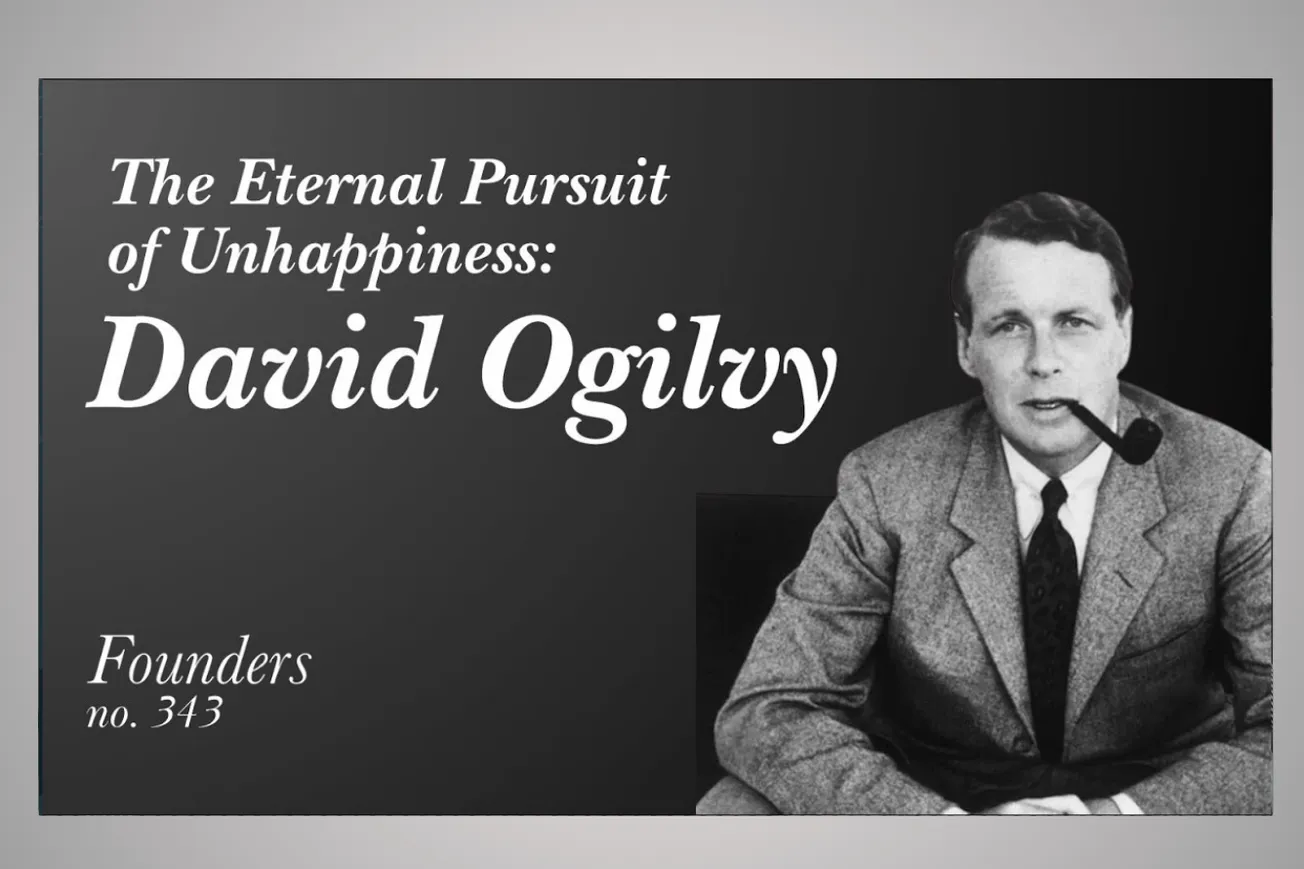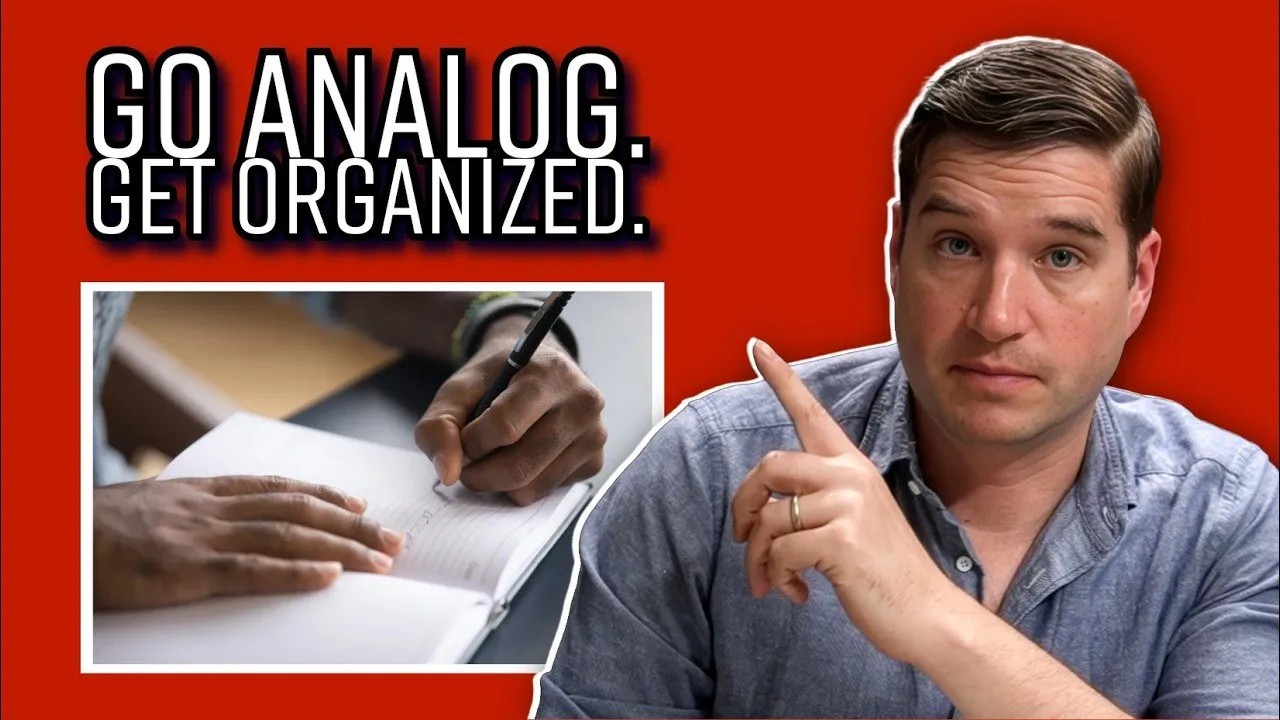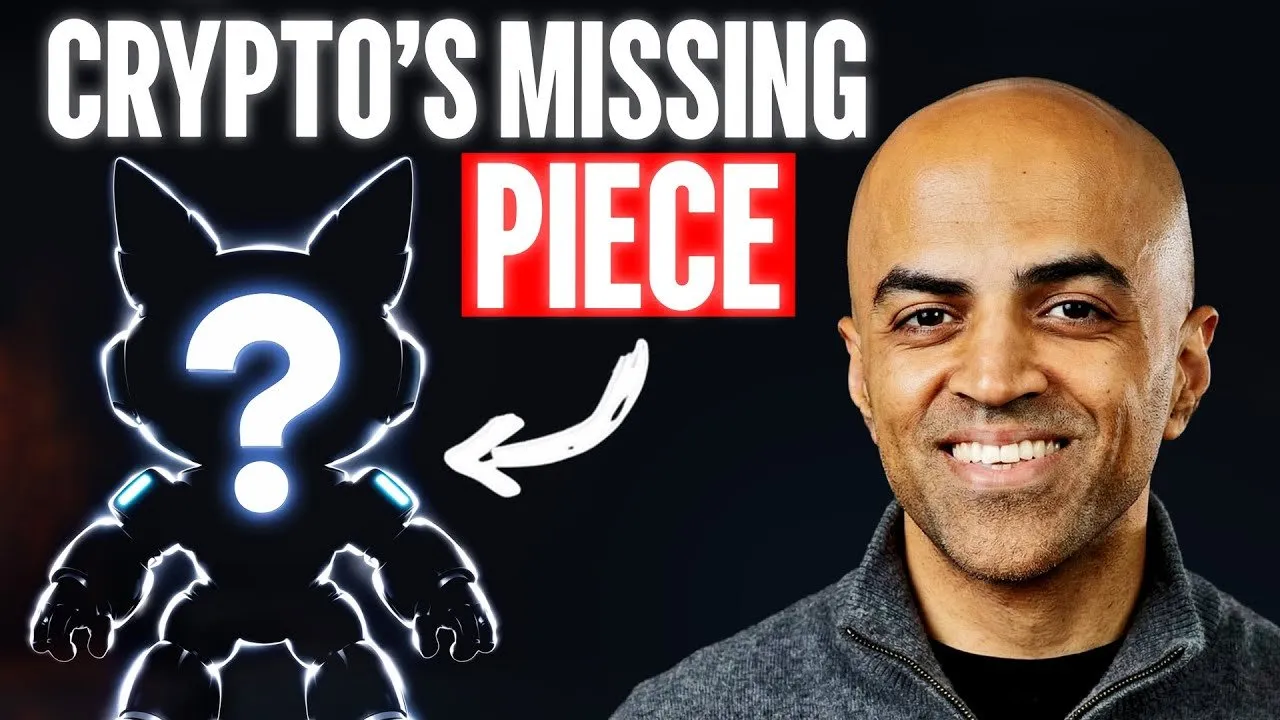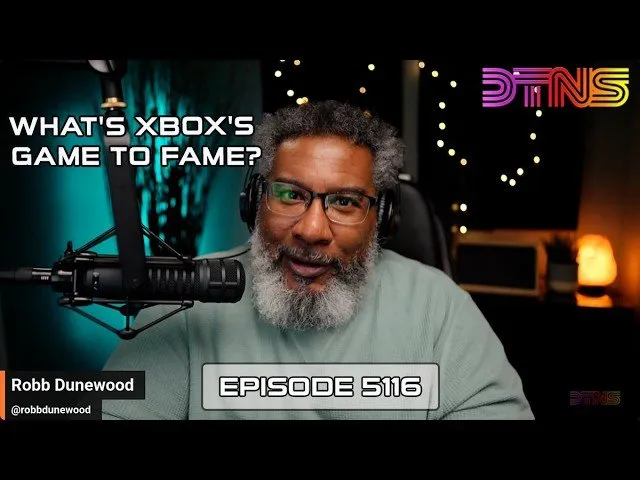Table of Contents
A 65-page handbook reveals David Ogilvy's philosophy for maintaining creative excellence and competitive edge in business through systematic divine discontent.
Key Takeaways
- Divine discontent serves as an antidote to smugness, driving continuous improvement and creative excellence in business.
- Eight creative habits form the foundation of highly innovative companies: courage, idealism, curiosity, playfulness, candor, intuition, free spiritedness, and persistence.
- Fear destroys creativity while courage enables all other productive habits, making it the cornerstone of innovative organizations.
- Trust emerges as one of the greatest economic forces, built through consistent courage and authentic leadership practices.
- Bureaucracy kills ideas while free-spirited environments with clear permission to practice magic unleash creative potential.
- Persistence and dogged determination often separate moderately creative people from highly creative ones in meaningful work.
- Company culture must actively combat natural human tendencies toward politeness, expedience, and comfort with mediocrity.
- Founders must create systems ensuring their philosophies survive beyond their direct involvement in daily operations.
Timeline Overview
- 00:00–08:15 — Introduction and Discovery: How the host discovered this 65-page handbook through studying Quentin Tarantino, the book's origins as an internal Ogilvy document, and Warren Buffett's influence in introducing David Ogilvy as a genius worth studying.
- 08:15–18:30 — Divine Discontent Philosophy: Defining Ogilvy's core concept as "an antidote to smugness," exploring how top performers maintain perpetual dissatisfaction with their work quality, and the challenge of preserving founder philosophies after the founder's death.
- 18:30–28:45 — Framework of Virtues vs Vices: Overview of eight creative habits and their corresponding destructive opposites, contrasting fear with courage, expedience with idealism, status quo with curiosity, and establishing why companies need systematic approaches to combat natural human tendencies.
- 28:45–38:20 — Habit 1: Courage: Why "there's no shortage of brains in the industry, it's the vertebrae column that tends to be missing," how fear destroys creativity while courage enables all other habits, and the virtuous cycle where courage builds trust which builds more courage.
- 38:20–46:35 — Habit 2: Idealism: David's directive to "raise your sights, blaze new trails, compete with the immortals," why small dreams create small people, and the poverty of ambition that comes from focusing solely on quarterly targets rather than transformational work.
- 46:35–54:50 — Habit 3: Curiosity: Einstein's admission that curiosity matters more than intelligence, Paul Graham's insight about curiosity as the secret to great work, and Ray Kroc's philosophy that "when you're green you grow, when you're ripe you rot."
- 54:50–63:25 — Habit 4: Playfulness: How David never entirely grew up, the famous pajama incident at Ogilvy, why "necessity may be the mother of invention but horse play is most certainly the father," and Kobe Bryant's insight that love drives all great performers.
- 63:25–72:40 — Habit 5: Candor: The "tyranny of politeness" that destroys trust, why "we only get a spark when the stone and Flint are moving in opposite directions," and Jeff Bezos's preference for conflict over agreement to achieve better results.
- 72:40–81:15 — Habit 6: Intuition: Steve Jobs's belief that intuition is more powerful than intellect, how dreams and gut feelings represent unconscious guidance, and David's approach to managing creative mavericks versus bureaucratic caretakers.
- 81:15–89:30 — Habit 7: Free Spiritedness: The fundamental rules "there are no rules" and avoiding bureaucratic sausage factories, creating "permission to practice magic" where people become alchemists rather than servants to systems.
- 89:30–95:45 — Habit 8: Persistence: The reality that creative work involves "dead ends, cabin fevers, and loop-de-loops," why "dogged determination is often the only trait that separates a moderately creative person from a highly creative one," and James Dyson's insight about quantum leaps being the result of persistent effort.
The Philosophy Behind Divine Discontent
David Ogilvy's concept of divine discontent emerged from a fundamental understanding that excellence requires perpetual dissatisfaction with current performance. This philosophy served as the cornerstone of the Ogilvy agency's competitive advantage during the 1950s and 1960s, when they consistently outperformed established competitors through relentless pursuit of better work.
- The agency developed this handbook years after Ogilvy's death to preserve his philosophical approach and prevent the company from becoming another bureaucratic organization run by "second generation caretakers who have floated to the top of their organizations because they were smooth contact men."
- Divine discontent functions as "an antidote to smugness," ensuring teams never become satisfied with good enough performance but continuously push toward exceptional results that separate great companies from merely successful ones.
- The philosophy directly parallels Steve Jobs' approach to excellence, where achieving something wonderful simply meant waking up the next day to attempt something wonderful again, creating an endless cycle of improvement.
- This mindset requires companies to operate from a position of strength rather than fear, constantly challenging themselves to reach higher standards rather than simply meeting quarterly targets or avoiding account losses.
- The concept extends beyond individual performance to encompass entire organizational culture, where every person from top to bottom adopts the same relentless pursuit of excellence in their daily work.
- Ogilvy understood that maintaining this philosophy becomes exponentially more difficult as organizations grow larger, requiring systematic approaches to prevent the natural drift toward mediocrity and bureaucratic thinking.
The Foundation: Courage Over Fear
Courage stands as the first and most critical habit because it enables all other creative behaviors, while fear serves as the primary destroyer of innovation and excellence in organizations.
- The advertising industry contains "no shortage of brains" but consistently lacks "the vertebrae column that tends to be missing," making courage rarer and more valuable than raw intelligence or technical skill.
- Fear operates as "a demon that devours the soul of a company," systematically diminishing imagination quality, dulling appetite for adventure, and draining organizational youth through self-doubt that becomes creativity's worst enemy.
- Peter Thiel reinforced this principle by noting that "brilliant thinking is rare, but courage is in even shorter supply than genius," explaining why so many companies fail despite having access to talented people and good ideas.
- Arnold Schwarzenegger captured the practical danger of fear when he observed that "when you start doubting yourself, that is very dangerous," because self-doubt immediately undermines the confidence necessary for breakthrough work.
- Courage creates a virtuous cycle where "courage leads to trust, which leads to courage, which leads to trust, and upwards and onwards we go," establishing the foundation for all meaningful business relationships.
- Companies with courage stop double-guessing decisions and express clear opinions, which founders naturally possess but larger organizations must systematically cultivate to avoid paralysis through committee thinking and risk aversion.
- Trust emerges as "one of the greatest economic forces on Earth," as demonstrated by Warren Buffett and Charlie Munger's partnership that began with shared ideas and continued through decades based purely on mutual respect and handshake agreements.
Idealism and Vision: Competing with Immortals
True idealism requires organizations to set impossibly high standards and pursue dreams that seem unrealistic to conventional thinking, rejecting the poverty of ambition that characterizes most business operations.
- David Ogilvy's directive to "raise your sights, blaze new trails, compete with the immortals" captures the essence of idealistic thinking that separates legendary companies from those that simply meet market expectations.
- When dreams become little, people become little, focusing their energy on mundane objectives like meeting next quarter's targets and avoiding account losses rather than pursuing transformational work that could reshape entire industries.
- The handbook specifically warns against focusing life "solely on making a buck" because it "shows a poverty of ambition," encouraging instead the pursuit of work that creates lasting value and meaningful impact.
- Helen Keller's insight that having "sight and no vision" represents the worst possible condition illustrates how many talented people waste their abilities by failing to dream at appropriate scale for their capabilities.
- Companies must actively resist the gravitational pull toward pragmatic thinking that prioritizes short-term safety over long-term excellence, recognizing that extraordinary results require extraordinary commitment to seemingly impossible goals.
- The size of dreams directly determines "how great we become," making it essential for organizations to "dream humongous dreams, put on our overalls and go out there and build them" rather than settling for incremental improvements.
- Steve Jobs' philosophy that "the people who are crazy enough to think that they can change the world are the ones who do" represents the practical application of idealistic thinking in business contexts.
Curiosity and Playfulness: Maintaining Creative Youth
Curiosity serves as the primary driver of innovation, while playfulness creates the psychological conditions necessary for breakthrough thinking and prevents organizations from becoming overly serious about themselves.
- Einstein's admission that "I am neither especially clever nor especially gifted, I am only very, very curious" demonstrates how curiosity often matters more than traditional measures of intelligence or talent in creative work.
- Paul Graham's observation that if an oracle revealed the secret to doing great work in a single word, "my bet would be on curiosity," reinforces the fundamental importance of maintaining wonder and questioning in professional environments.
- Ray Kroc summarized the practical application of curiosity when he noted that "when you're green you grow, when you're ripe you rot," finding his life's work at age 50 because he maintained beginner's mind throughout his career.
- Most people operate in "this dazzling Aladdin's cave" of life and opportunity but choose to "close our eyes," missing the endless trail of ideas floating in the ether that only curious minds can detect and capture.
- David Ogilvy never entirely grew up, regularly heckling in meetings, throwing chocolate cakes at dinner parties, and rolling down grassy slopes in Brooks Brothers suits, understanding that "necessity may be the mother of invention, but horse play is most certainly the father."
- When the Los Angeles Times asked about casual dress codes, Ogilvy responded, "I don't care if people come to work in their pajamas as long as they get the work out," leading an entire department to show up in pajamas the next day, creating office-wide laughter.
- Kobe Bryant identified love as the universal quality among great performers, explaining that "we absolutely love" what we do with "pure love" that transcends fame, money, or championships, creating the intrinsic motivation necessary for sustained excellence.
Candor and Intuition: Truth-Telling and Inner Wisdom
Candor destroys the tyranny of politeness that prevents honest feedback, while intuition provides access to unconscious wisdom that logical analysis cannot reach.
- The "tyranny of politeness" represents one of the most dangerous organizational diseases because it prioritizes social comfort over truth-telling, gradually destroying the trust necessary for excellent work and honest relationships.
- David Ogilvy warned that "we can be too agreeable for our own good," understanding that avoiding candor systematically destroys trust while creating the false harmony that prevents teams from addressing real problems.
- Productive conflict generates better results than artificial agreement, as Jeff Bezos noted: "If I have to choose between agreement and conflict, I'll take conflict every time. It always yields a better result."
- Teams only generate creative sparks "when the stone and the Flint are moving in opposite directions," requiring deliberate cultivation of constructive disagreement rather than comfortable consensus that avoids difficult conversations.
- Steve Jobs recognized that "intuition is a very powerful thing, more powerful than intellect in my opinion," acknowledging that breakthrough insights often emerge from unconscious processing rather than logical analysis.
- Dreams, premonitions, and gut feelings represent "attempts by our unconscious to guide us" because "we are wiser than we think," and intuition provides "the art of listening to the guru within us all."
- David Ogilvy's management philosophy emphasized creating "an atmosphere in which creative Mavericks can do useful work," recognizing that managing talent requires intuitive understanding rather than rigid systematic approaches.
- The most potent campaigns emerge from companies led by founders rather than "second generation caretakers" because founders maintain direct connection to their intuitive understanding of what works rather than relying solely on research and committee decisions.
Free Spiritedness and Persistence: Breaking Rules and Never Giving Up
Free spiritedness eliminates bureaucratic constraints that kill innovation, while persistence provides the dogged determination necessary to overcome the inevitable obstacles in creative work.
- The fundamental rules of free-spirited organizations are simple: "Rule number one: there are no rules. Rule number two: never forget rule number one," creating permission for breakthrough thinking that bureaucratic structures systematically prevent.
- Bureaucratic "sausage factories pumping out fodder for meetings" represent the antithesis of creative environments because they prioritize process over results and conformity over innovation, making genuine problem-solving impossible.
- Companies with proper atmosphere feel different because "the air itself is different," creating what David called "permission to practice magic" where people function as "alchemists" rather than servants to rigid systems.
- Creative work naturally involves "dead ends, cabin fevers, blind spots, zigzags, u-turns, roundabouts and loop-de-loops" because "those who live by their wits go to work on roller coasters," requiring emotional resilience for the unpredictable journey.
- Ignorance often serves as an asset because "if you don't know that you don't know, you're ideally poised for a leap across a chasm," explaining why many successful entrepreneurs admit they never would have started if they understood the true difficulty ahead.
- The persistent research process requires looking everywhere: "at the clouds, in the closet, at the ceiling, in libraries, in magazines, at old advertising magazines, at the Bible, in cinemas, in art galleries, at people, at the edge of your desk, in the mirror, at your dreams."
- "Dogged determination is often the only trait that separates a moderately creative person from a highly creative one" because "great work is never done by temperamental geniuses but by obstinate donkey men" who refuse to quit when others give up.
- James Dyson's insight that "there is no such thing as a quantum leap, there's only dogged persistence, and in the end you make it look like a quantum leap" captures the reality that breakthrough innovations result from sustained effort rather than sudden inspiration.
Conclusion
David Ogilvy's divine discontent philosophy offers a practical framework for organizations seeking to maintain creative excellence as they scale beyond founder-led operations. The eight habits work synergistically—courage enables honest feedback, curiosity drives innovation, playfulness prevents stagnation, candor builds trust, intuition guides decisions, free spiritedness eliminates bureaucracy, and persistence ensures breakthrough results. Companies that systematically cultivate these behaviors create cultures where exceptional work becomes the standard rather than the exception, proving that sustainable competitive advantage emerges from character-based habits rather than temporary tactical advantages.
Practical Implications
- Implement regular "divine discontent" reviews where teams assess current performance against impossible standards rather than industry benchmarks, fostering continuous improvement mindset throughout the organization.
- Hire for character traits over pure technical skills by prioritizing curiosity, courage, and persistence in interview processes, recognizing these habits can be developed but require foundational personality alignment.
- Create "permission to practice magic" environments by eliminating unnecessary bureaucratic processes and establishing clear decision-making authority at appropriate organizational levels to unleash creative potential.
- Institute candor protocols such as mandatory devil's advocate roles in meetings and anonymous feedback systems that reward honest input over polite agreement, building trust through truth-telling.
- Design playfulness into work culture through dedicated experimentation time, cross-functional projects, and celebration of intelligent failures that advance organizational learning and prevent stagnation.
- Develop intuition alongside data analysis by encouraging gut-check discussions and documenting instances where intuitive decisions outperformed purely analytical approaches to balance logic with wisdom.
- Build persistence systems including long-term project tracking, milestone celebration, and resource allocation that supports sustained effort through inevitable creative obstacles and setbacks.
- Document and share founder philosophies through comprehensive handbooks, structured mentorship programs, and decision-making frameworks that preserve essential cultural DNA as organizations grow beyond direct founder influence.





